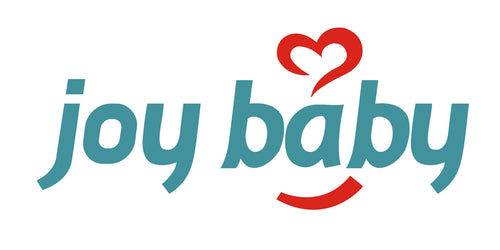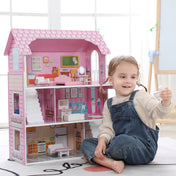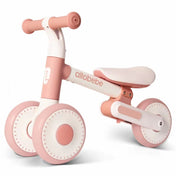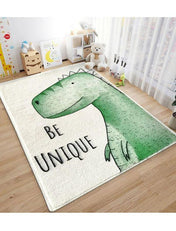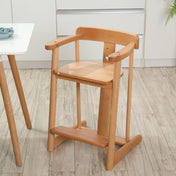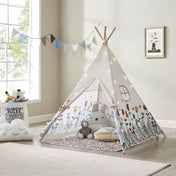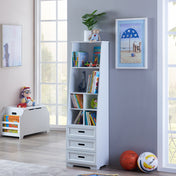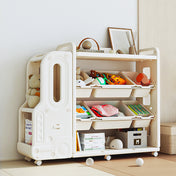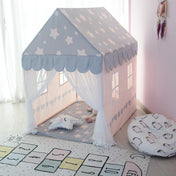In today's fast-paced digital world, where screens and gadgets dominate children's playtime, the timeless allure of pretend play remains an essential cornerstone of childhood development. Pretend play, also known as imaginative or symbolic play, involves children using their creativity to assume various roles and act out scenarios with the aid of pretend toys. This immersive form of play not only brings joy and laughter but also plays a pivotal role in fostering creativity and enhancing cognitive development in young minds. In this blog, we will explore the magic of pretend toys and the myriad ways they contribute to the holistic growth of children.
The Foundations of Creativity
Creativity is the wellspring of human ingenuity and progress, and it begins to blossom during childhood. Pretend play provides a fertile ground for children to tap into their imaginations and explore endless possibilities. As they engage with pretend toys, such as dolls, action figures, play kitchens, or toy cars, they weave narratives, create characters, and dream up exciting adventures. This uninhibited imaginative expression nurtures their creativity, allowing them to think beyond the confines of reality and envision new worlds, concepts, and solutions.
The Role of Cognitive Development
Cognitive development involves the growth of a child's intellectual abilities, including memory, problem-solving, language skills, and attention span. Pretend play serves as a crucible for cognitive growth, as it encourages children to think critically and make connections between different elements of their play scenarios.
When children play with pretend toys, they often take on roles with specific traits and emotions. This process fosters perspective-taking and empathy, as they try to understand the thoughts and feelings of their pretend characters. Additionally, children learn to solve problems creatively during their playtime, which can translate to real-world situations where innovative thinking is required.
Popular Pretend Toys that Spark Creativity and Cognitive Development
-
Dress-up Costumes and Props: Dressing up as different characters, whether superheroes, doctors, or princesses, helps children explore different roles and emotions. Adding props like wands, stethoscopes, or capes amplifies their imaginative play.
-
Building Blocks and Construction Sets: These toys allow children to build structures, vehicles, and cities from scratch. As they experiment and problem-solve during construction, they develop spatial awareness and engineering skills.
-
Pretend Kitchen Sets: Miniature kitchens equipped with play food and utensils let children role-play as chefs, encouraging them to experiment with recipes and understand basic principles of nutrition.
-
Action Figures and Dolls: These classic pretend toys inspire storytelling and character development. Children often recreate real-life situations, explore relationships, and create exciting adventures for their toy companions.
-
Play Cash Registers and Market Sets: These toys introduce children to the concept of money, counting, and basic math skills while simulating real-world scenarios like running a store.
-
Puppet Theaters and Hand Puppets: Puppetry enhances communication skills, as children invent dialogues and develop narratives for their puppet characters.
Encouraging Pretend Play at Home and School
To leverage the benefits of pretend play fully, parents and educators can take proactive steps to encourage and support it:
-
Create a Play-Friendly Environment: Set aside an area for pretend play, filled with various pretend toys, costumes, and props, that invites children to dive into their imaginary worlds.
-
Join the Play: Engage in pretend play with children. Your involvement validates their creativity and provides an opportunity for bonding and shared experiences.
-
Limit Screen Time: While technology has its merits, excessive screen time can limit a child's imaginative play. Strike a balance to allow time for both digital and traditional play experiences.
-
Incorporate Pretend Play in Learning: Educators can integrate pretend play into lesson plans, allowing children to act out historical events, literary characters, or scientific processes.
There are a few high quality pretend toy brand you can think about.
1. Le Toy Van
2. Tender Leaf Toys
3. Indigo Jamm
4. I'm Toy
5. Bigjigs
Conclusion
Pretend play and the accompanying pretend toys act as catalysts for creativity and cognitive development in children. As they immerse themselves in imaginative worlds, they develop problem-solving skills, emotional intelligence, and a foundation for critical thinking. So, let us celebrate the power of pretend play, encouraging children to embrace their creativity and embark on wondrous journeys through the magical realm of pretend toys. As they do, they take confident strides towards becoming imaginative, empathetic, and resourceful individuals who are ready to embrace the world's challenges with open hearts and minds.
